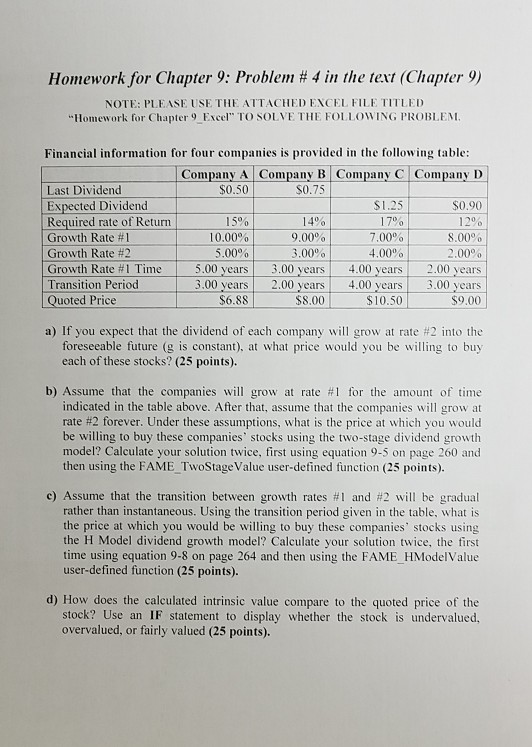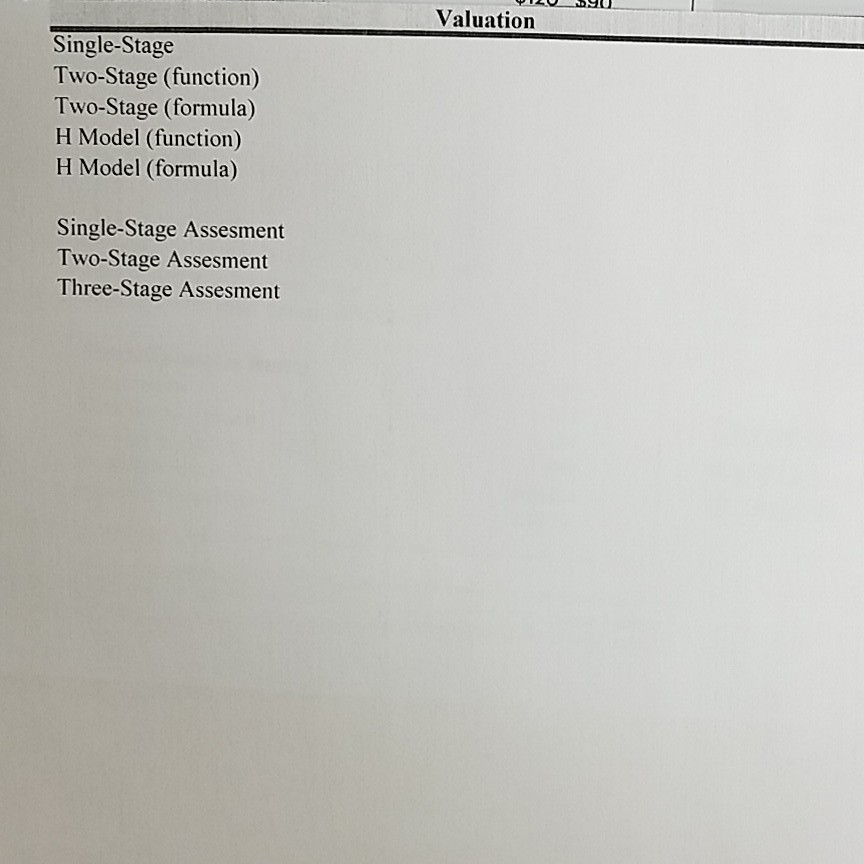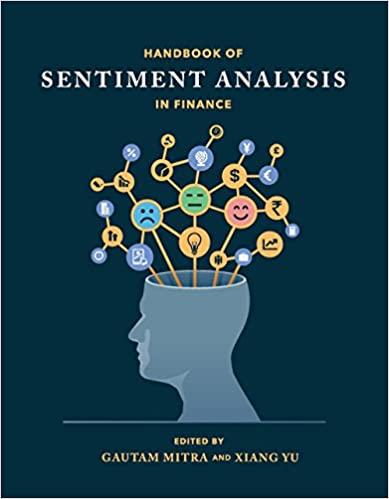Answered step by step
Verified Expert Solution
Question
1 Approved Answer
Homework for Chapter 9: Problem # 4 in the text (Chapter 9) NOTE: PLEASE USE THE ATTACHED EXCEL FILE TITLED Homework for Chapter 9 Excel


Homework for Chapter 9: Problem # 4 in the text (Chapter 9) NOTE: PLEASE USE THE ATTACHED EXCEL FILE TITLED "Homework for Chapter 9 Excel" TO SOLVE THE FOLLOWING PROBLEM Financial information for four companies is provided in the following table: Company A Company B Company C Company D Last Dividend $0.50 $0.75 Expected Dividend $1.25 $0.90 Required rate of Return 15% 14% 17% 12% Growth Rate # 1 1 0.00% 9.00% 2.00% 8.00% Growth Rate #2 5.00% 3.00% 4.00% 2.00 Growth Rate #1 Time 5.00 years 3.00 years 4.00 years 2.00 years Transition Period 3.00 vears 2.00 years 4.00 vears 3.00 years Quoted Price $6.88 $8.00 $10.50 $9.00 a) If you expect that the dividend of each company will grow at rate #2 into the foreseeable future (g is constant), at what price would you be willing to buy each of these stocks? (25 points). b) Assume that the companies will grow at rate #1 for the amount of time indicated in the table above. After that, assume that the companies will grow at rate #2 forever. Under these assumptions, what is the price at which you would be willing to buy these companies' stocks using the two-stage dividend growth model? Calculate your solution twice, first using equation 9-5 on page 260 and then using the FAME TwoStage Value user-defined function (25 points). c) Assume that the transition between growth rates #1 and #2 will be gradual rather than instantaneous. Using the transition period given in the table, what is the price at which you would be willing to buy these companies' stocks using the H Model dividend growth model? Calculate your solution twice, the first time using equation 9-8 on page 264 and then using the FAME HModelValue user-defined function (25 points). d) How does the calculated intrinsic value compare to the quoted price of the stock? Use an IF statement to display whether the stock is undervalued, overvalued, or fairly valued (25 points). Valuation Single-Stage Two-Stage (function) Two-Stage (formula) H Model (function) H Model (formula) Single-Stage Assesment Two-Stage Assesment Three-Stage Assesment
Step by Step Solution
There are 3 Steps involved in it
Step: 1

Get Instant Access to Expert-Tailored Solutions
See step-by-step solutions with expert insights and AI powered tools for academic success
Step: 2

Step: 3

Ace Your Homework with AI
Get the answers you need in no time with our AI-driven, step-by-step assistance
Get Started


